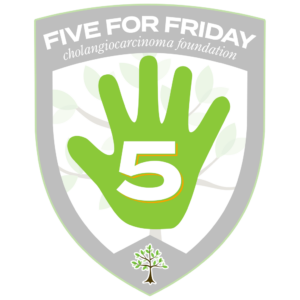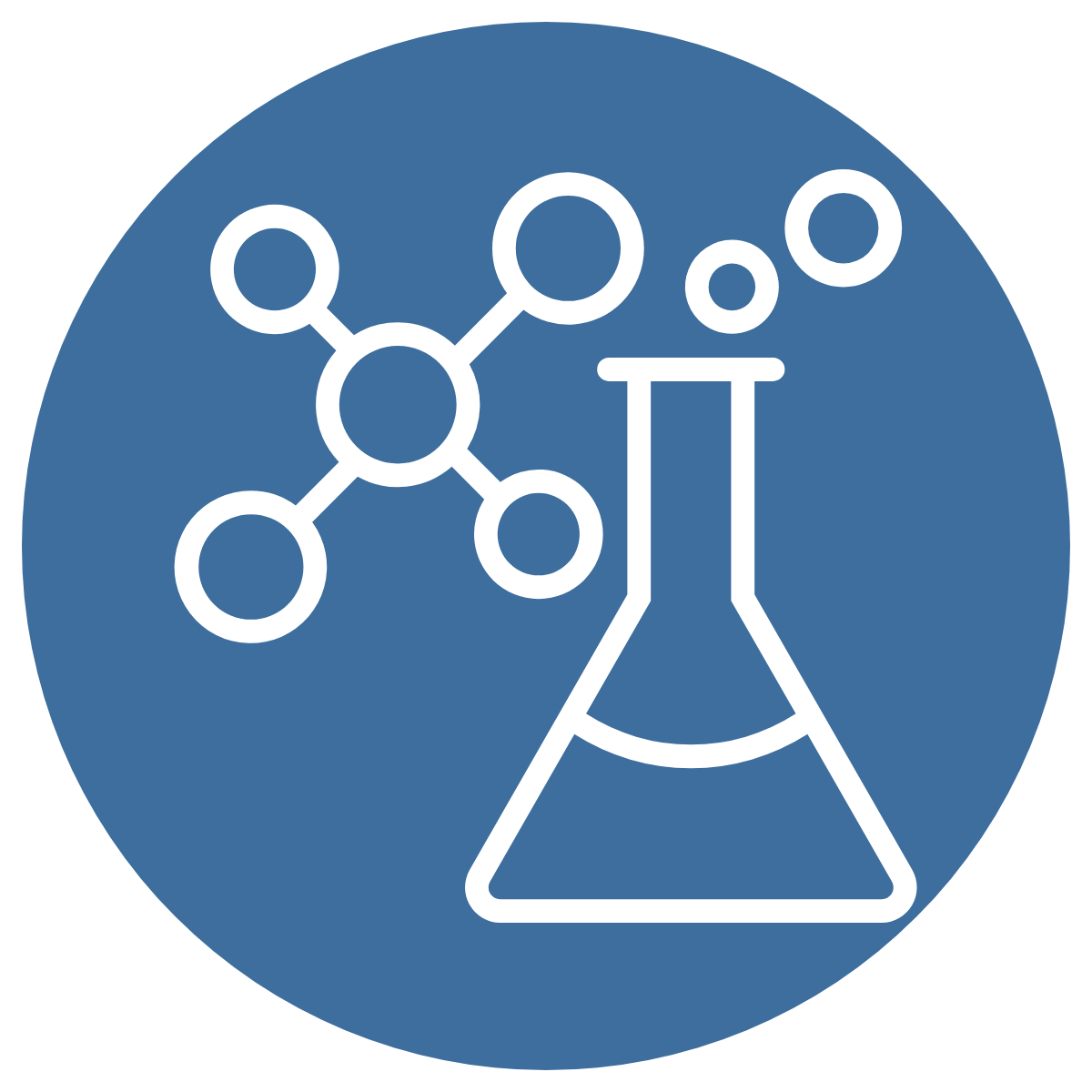
🤚🏻 Five for Friday – 5 takeaways from GI ASCO 2023
Home / Blog / [wpbb post:title]
The American Society of Clinical Oncology Gastrointestinal Cancers Symposium The American Society of Clinical Oncology Gastrointestinal Cancers Symposium (GI ASCO) is an annual global symposium that delivers the latest and most innovative science, research, and multidisciplinary educational content in the GI cancers field.
Cholangiocarcinoma Foundation leaders, our scientific and medical community members, research advocates, and International Cholangiocarcinoma Research Network members (ICRN) attend, participate, and present each year.
Participation informs us on leading-edge research and discoveries and helps to inform our research strategies and collaborations.
We are pleased to share five important takeaways from this year’s GI ASCO.


VEGF inhibitors are showing promise
There is interest in inhibiting VEGF because tumors use it to create new blood vessels and accelerate growth. Bevacizumab is a VEGF inhibitor that, together with anti-PD1, showed remarkable efficacy against hepatocellular carcinoma in the IMbrave-150 trial and has become a new standard of care for that cancer. However, against CCA in the related IMbrave-151 trial, Dr. El-Khoueiry reported that adding bevacizumab to GemCis and anti-PD1 did not much change the overall response rate or disease control rate, although there was an intriguing increase in the duration of response. More promising was news about CTX-009, a bispecific drug that inhibits both VEGF and another signaling molecule that works with VEGF, DLL4. Dr. Do-Youn Oh reported results from a phase-1 trial of CTX-009 plus paclitaxel against advanced biliary cancer (NCT04492033). With 22 evaluable patients among 24 enrolled, there were nine partial responses and 13 stable diseases (ORR = 38%, DCR = 92%). No patients had progressive disease. A new trial of CTX-009 plus paclitaxel was announced (NCT05506943).
https://meetings.asco.org/abstracts-presentations/215565

News about liver transplants
While the traditional therapeutic goal of cholangiocarcinoma treatment has been resection, a transplant can also extend survival. Surgeons are now transplanting more cases of cholangiocarcinoma. Only tumors smaller than 2cm used to be considered, now we are seeing much larger tumors considered for transplant. Survival has been better than expected in comparison with any other treatment. They hope that more cholangiocarcinoma patients will be considered for a transplant.
https://meetings.asco.org/abstracts-presentations/216357

Results of the SWOG 1815 Trial
Dr. Rachna Shroff reported that adding nab-paclitaxel to gemcitabine/cisplatin did not produce a statistically significant improvement in overall survival (OS) vs. gemcitabine/cisplatin alone. The median OS for nab-paclitaxel plus gemcitabine/cisplatin was 14 months, compared with 12.7 months for gemcitabine/cisplatin alone. “SWOG 1815 did not meet its primary endpoint, but I still think it had a positive impact in the space of biliary tract cancers,” said Rachna T. Shroff, MD, of the University of Arizona Cancer Center, who offered several positive thoughts as she concluded her presentation of the data. “SWOG 1815 is the first randomized phase III trial in biliary tract cancer and proved we can do a randomized phase III trial in a rare tumor. It also proved that an NCI-sponsored study opening through a National Clinical Trials Network mechanism can open quickly and answer an important and meaningful question expeditiously.”
https://meetings.asco.org/abstracts-presentations/215521

Encouraging reports of more therapies targeting FGFR
Dr. Milind Javle reported early results on tinengotinib, an FGFR 1-3 inhibitor, in an ongoing phase-2 study (NCT04919642). Participants in the trial were divided into four groups depending on their prior FGFR inhibitor treatments, including one group of patients without FGFR alterations. The results included ORR = 16% and DCR = 88%, including 75% DCR even among those with wild-type FGFR! Dr. Ye Guo reported on gunagratinib, an irreversible FGFR inhibitor, in a trial against previously treated patients with an FGFR alteration (NCT03758664). Of 17 assessed patients, there were 9 PR and 7 SD, for ORR = 53% and DCR = 94%. The median PFS was 6.9 months. Dr. Shubham Pant reported on erdafitinib in the phase-2 RAGNAR trial against CCA with FGFR 1-4 alterations (NCT04083976). The median time to onset of response was 1.5 months. ORR = 60%. DCR = 100%.
https://meetings.asco.org/abstracts-presentations/216395

A new target, MDM2, looks promising
MDM2 regulates the tumor suppressor gene p53 in the DNA damage repair process. The protein p53 can prevent cancer by stopping the division of cells with altered DNA. Because MDM2 regulates p53, high levels of MDM2 can disable the p53 pathway and encourage tumor growth. Dr. Noboru Yamamoto reported results from two small phase-1 dose-escalation trials of the MDM2-p53 inhibitor BI907828 against advanced biliary tract cancer (NCT03449381 and NCT03964233). BI907828 alone did very well with six patients (33% ORR and 67% DCR). In combination with a PD-1 antibody, three of four patients had a partial response, and the other had stable disease, for 75% ORR and 100% DCR. A phase-2 trial is recruiting in Spain, Korea, and Japan (NCT05512377).
https://meetings.asco.org/abstracts-presentations/215580
If you have something you’d like to share, please reach out to Allison Deragon at allison.deragon@cholangiocarcinoma.org.